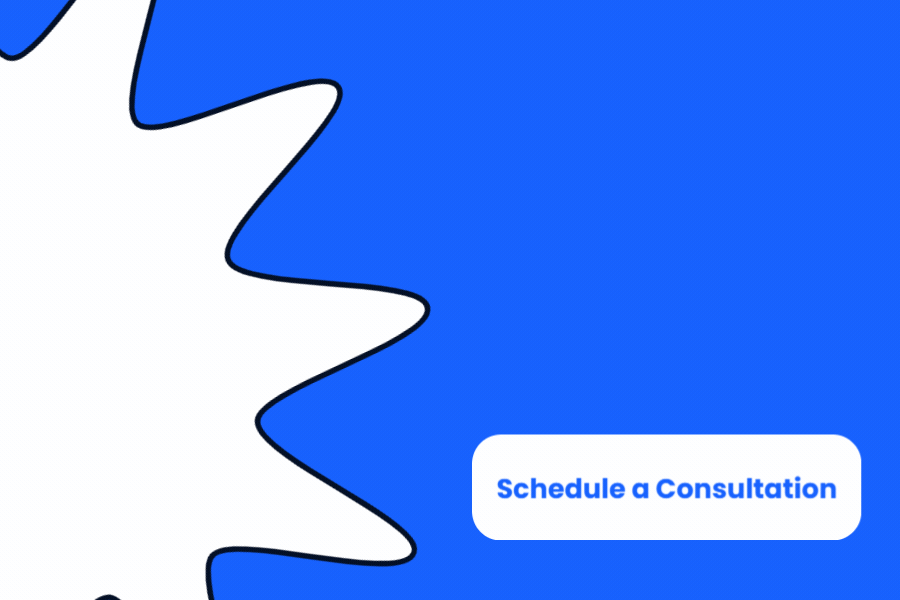

Work Abroad as a Nurse
Nursing is a cornerstone of healthcare systems facing unprecedented challenges. It is also one of the most fulfilling and respected jobs worldwide. Yet, aging populations, growing healthcare needs, and workforce shortages have caused urgent demand for skilled nurses. Fast-track immigration programs address these gaps by attracting qualified professionals to needy countries, such as Canada, Australia, and Germany. In such countries, longer life expectancies are increasing the need for healthcare services. For a better understanding, look at these trends:- By 2035, nearly half of Canada’s population will be elderly, requiring specialized care for chronic conditions such as diabetes and heart disease.
- Germany anticipates a surge in elderly care needs, too, with projections estimating a 20% increase in demand for nursing services by 2040.
- Australia’s aging population is straining rural healthcare systems, with limited professional access.
- In the United States, over one million nurses are expected to retire by 2030, leaving a significant healthcare delivery gap.
- Canada reports shortages in provinces like Alberta and Nova Scotia, particularly in rural areas.
- Australia’s healthcare system struggles to staff remote regions, with vacancy rates as high as 15% in some areas.
Benefits of Nurse Immigration Programs
Fast-track programs bring international nurses compelling reasons to relocate, combining career advancement with personal and financial stability. These are the most popular benefits among applicants who are looking to work abroad as a nurse in the healthcare system:Competitive Salaries and Job Security
Nurses abroad enjoy high earning potential, for instance:- Registered nurses earn $65,000 to $100,000 annually in Australia, with rural roles offering bonuses.
- Canadian nurses average $70,000 to $90,000, with overtime and rural incentives boosting income.
- Germany provides €2,500 to €3,500 monthly, with raises after experience.
Social Benefits of Nurse Immigration Programs
Immigrating nurses gain access to robust social systems. Consider these examples:- Canada’s universal healthcare covers medical needs for permanent residents.
- Australia’s Medicare offers similar support.
- Germany’s social security includes health insurance, pensions, and unemployment benefits, with contributions starting upon employment.
Clear Pathways to Permanent Residency
Most fast-track programs lead to permanent residency, which opens doors to citizenship.- Canada’s Express Entry grants residency in six to eight months after invitation.
- Australia’s Skilled Independent Visa offers residency without a job offer.
- Germany’s Skilled Workers Visa allows residency after two to five years.

Challenges of Work Abroad as a Nurse
While nurse immigration programs are advantageous, nurses may face challenegs like credential delays, language barriers, and rural placements. So you should prepare if you are considering working abroad.Credential Recognition Delays
Verifying foreign qualifications can be time-consuming.- Germany’s recognition process may take three to twelve months, depending on the state.
- Canada’s ECA is faster, but licensing exams add time.
- Australia’s skills assessment requires detailed documentation.
Language and Cultural Barriers
Mastering a new language, like German at the B2 level, can take six to twelve months for non-speakers. Cultural differences, such as workplace hierarchies or patient communication styles, may also pose challenges. Enrolling in language courses (online or local) and joining nurse networks abroad can ease transitions. Nurse immigration programs like Germany’s Triple Win provide language and integration support.Adapting to Rural and Remote Work
Many programs prioritize rural placements, offering faster residency but requiring adaptation to limited amenities. Canada’s PNPs and Australia’s regional schemes target underserved areas, where nurses may face isolation but gain community connections and career growth. Researching living conditions and connecting with local nurse groups before moving ensures a smoother adjustment.Most Popular Nurse Immigration Programs
Several countries have developed specialized immigration pathways to attract nurses, offering better visa processes and simpler routes to permanent residency. Below are the most prominent programs that meet the needs of healthcare professionals. Therefore, if you are planning to work abroad as a nurse, consider these available options:Canada’s Express Entry and Provincial Nominee Programs
Canada’s Express Entry system is a points-based pathway prioritizing nurses through category-based selection. Candidates create an online profile, earning points for age, education, work experience, and language proficiency. High-scoring nurses receive invitations to apply for permanent residency, with processing times of six to eight months after an invitation. In 2024, Canada issued over 10,000 invitations to healthcare professionals, with nurses making up a significant portion. Provincial nominee programs (PNPs) offer additional opportunities for nurses willing to work in specific regions. Provinces like Ontario, British Columbia, and Alberta nominate nurses for permanent residency, often requiring a job offer. PNPs particularly appeal to rural or underserved areas, where nurses can secure faster approvals. For example, British Columbia’s PNP prioritizes healthcare workers, processing applications in at least three months with employer support. Check this guide on the Abroadin blog for the latest RCC updates for people looking to immigrate to Canada.Australia’s Skilled Migration | Nurse Immigration Programs
Australia’s immigration system is highly favorable for nurses, offering permanent residency through visas like the Skilled Independent Visa (Subclass 189) and Skilled Nominated Visa (Subclass 190). These points-based visas assess candidates on age, experience, and English proficiency. Nurses must complete a skills assessment and register with Australian authorities, but some visas do not require a job offer, providing flexibility. In 2023, Australia granted over 5,000 skilled visas to nurses, with processing times averaging nine months. The Regional Sponsored Migration Scheme further incentivizes nurses to work in rural areas, offering permanent residency with a job offer. Nurses in regions like Tasmania or the Northern Territory benefit from lower competition and faster processing, often within six months.United States Visa Options to Work Abroad as a Nurse
The United States offers pathways for nurses, though processing can be slower due to high demand. The Employment-Based Green Card (EB-3) allows nurses with a job offer to gain permanent residency. Depending on the applicant’s country of origin, the wait time varies from one to three years. The H-1B Temporary Skill Shortage Visa supports temporary work but requires employer sponsorship and is subject to annual caps. Nurses must pass the NCLEX exam and meet state licensing requirements, which can take six months to a year.Germany’s Skilled Workers Visa
Germany’s Skilled Workers Visa attracts nurses to its aging healthcare system. International students can stay in Germany after graduation, too. Applicants need recognized qualifications and B2-level German language skills, though B1 may suffice with employer support. If qualifications are not equivalent, nurses can work as assistants while completing training, typically lasting six to twelve months. The visa offers a path to permanent residency after two to five years, with over 3,000 nurses immigrating to Germany annually through this program.Other Nurse Immigration Programs and Opportunities
Some countries offer nurse immigration programs for specific regions. So you need to search in your destination area to find available opportunities. For instance:- Canada’s Atlantic Immigration Program supports nurses in provinces like Nova Scotia and Newfoundland. It requires employer sponsorship but offers permanent residency within a year.
- Australia’s regional schemes prioritize rural healthcare, with incentives like priority processing and relocation support.

Requirements for Work Abroad as a Nurse
Qualifying for fast-track programs requires meeting specific criteria, including education, work experience, language proficiency, licensing, and health checks. Understanding these requirements ensures a smooth application process. Let’s check the requirements that are most frequently asked for in nurse immigration programs worldwide.1. Education and Credential Recognition
A recognized nursing degree or diploma is mandatory:- Canada requires an Educational Credential Assessment (ECA) to verify foreign qualifications, typically completed in four to six weeks.
- Australia’s skills assessment, conducted by the Australian Nursing and Midwifery Accreditation Council, evaluates credentials and may require additional documentation.
- In Germany, state authorities assess qualifications, and partial recognition may necessitate supplementary training, which can take three to twelve months.
2. Work Experience
Most programs require six months to one year of nursing experience:- Canada’s Express Entry system rewards recent healthcare roles with additional points for over three years of experience.
- Australia’s visas require proof of relevant work while
- Germany accepts assistant roles during qualification bridging.
3. Language Proficiency
Strong language skills are critical for patient safety and workplace integration:- Canada accepts English (IELTS, CELPIP) or French (TEF) proficiency tests, with minimum scores equivalent to CLB 7.
- Australia requires high English proficiency, often through the Occupational English Test (OET), designed for healthcare professionals.
- Germany mandates B2-level German (Goethe-Institut, TestDaF), though some employers allow B1 with further training.
4. Licensing and Registration
Nurses must register with professional bodies to practice legally:- Australia’s Australian Health Practitioner Regulation Agency (AHPRA) oversees registration, requiring proof of qualifications and English skills.
- Canada’s provincial colleges, such as the College of Nurses of Ontario, verify credentials and exam results, such as the NCLEX-RN.
- Germany’s state health authorities handle registration post-qualification recognition.
5. Health and Character Checks
All countries order health and character screenings. Medical certificates confirm soundness to work, while background checks verify no criminal history. These steps usually take one to two weeks to complete, and they protect patients and maintain trust in healthcare systems.Apply for Nurse Immigration Programs in Four Steps
Applying for fast-track immigration requires careful planning. Follow the steps below to facilitate the process and increase your chances of success:1. Research and Select a Program
Identify programs aligning with your goals:- Canada’s Express Entry suits nurses seeking quick residency without a job offer.
- Australia’s Skilled Independent Visa is ideal for those with strong qualifications.
- Germany’s Skilled Workers Visa fits nurses willing to learn German.
2. Gather Required Documents
Collect essential documents, including your nursing degree, work experience letters, language test results, and passport. Canada requires an ECA, Australia needs a skills assessment, and Germany demands qualification recognition forms. Organize digital and physical copies to avoid delays. You may take one or two days for granted, but even a one-day delay may ruin your application process!3. Submit Your Application
Use official portals like Canada’s Express Entry system, Australia’s SkillSelect, or Germany’s embassy services. Follow instructions precisely, double-checking documents for accuracy. While some nurses hire consultants, self-applications are feasible with thorough preparation.4. Prepare for Arrival
Once your request is approved, plan your relocation. It’s suggested to:- Research housing, healthcare, and local culture.
- Join nursing associations or online communities for support.
Conclusion
Nurse immigration programs are great opportunities to build rewarding careers in countries like Canada, Australia, the United States, and Germany. They address global healthcare shortages while offering competitive salaries, social benefits, and routes to permanent residency. If you find this article on Abroadin helpful and want to receive our latest immigration news, guides, and tips, subscribe to our newsletter below. We are here to help you achieve your educational and professional goals.FAQ
Here are the most frequently asked questions about the top study abroad consultants for Indian students:
Canada, Australia, the US, and Germany offer nurse immigration programs with streamlined visas for permanent residency, enabling nurses to work abroad as a nurse in high-demand healthcare systems.
Australia’s nurse immigration programs require a skills assessment, English proficiency (OET), and six months of experience to work abroad as a nurse. Visas like Subclass 189 offer residency in nine months.
US fast-track immigration programs, like the EB-3 Green Card, take 1-3 years for nurses to work abroad as a nurse, requiring a job offer, NCLEX, and state licensing.
Germany’s fast-track immigration programs require B2 German proficiency to work abroad as a nurse, though B1 may suffice with employer support, ensuring patient safety and integration.
Nurse immigration programs involve credential delays and language barriers. Preparation, like early applications and language courses, helps nurses work abroad as nurses, with programs like Triple Win easing transitions.
For downloading PDF of the article fill the form


How useful was this post?
Click on a star to rate it!
Average rating 4.5 / 5. Vote count: 4
No votes so far! Be the first to rate this post.








No comment yet, add your voice below!